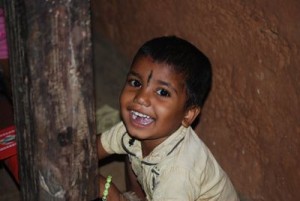
One often hears of the high prevalence of child labour in our country. Of the many reports I have read, perhaps the most disturbing was a report on the condition of children employed by zari factories in Delhi, Mumbai and other parts of India. It grieves me to imagine children exposed to such inhumanity in an evolved society like ours.
Robbing children of their childhood is a criminal act, and our society must weed this malaise out from the root. But where does the root lie? Before you attempt an answer, let me give you an anecdote from the other end of the social spectrum.
A colleague in Wipro has a child studying in standard nine of a reputed school in Bangalore. This child wakes up at 5 a.m. and studies for an hour before going to school. She returns from school at 4 p.m. and rushes for her IIT entrance exam coaching class. At 6 p.m., she has tuition for 2 hours. Post dinner, she spends an hour or more on homework. I asked her when she gets time to play. She replied that she does not play. She gets half an hour of free time each day, which she spends watching her favourite serial on television. She also added that board exams and entrance exams are very important, and that you only get one chance.
Let me ask you: is the condition of this child different from that of the child in the zari factory?
When I look at children, I wonder whether they have time to play with friends, to meet interesting people, to explore the world, and to follow their curiosity. When the first monsoon showers begin, I would think that the streets would be full of children rushing headlong into the rain, dancing and playing. However, I think today, the rains fall on empty streets.
This, my friends, is the new Indian reality in our villages, in our slums, and in our metropolitan high-rises. Whatever the reasons – poverty, societal aspiration, apathetic individuals and organisations, or just the burden of circumstances – the reality is that our children are straitjacketed, thus stifling their natural growth.
The final indicator of a country’s independence is the way its children live. Are children free from the malaise of poverty and hunger? Are they free from the burden of parental aspiration? Are they free from norms of social conditioning? Are we ensuring the curiosity of our children continues to burn and is not stamped out? Are they free to explore the world, to realize their unique potential, and thereby, help discover the true potential of the society itself?
Gandhiji said that the greatest lessons in life are learnt from children, not from learned men. A child will fearlessly try before giving up. As adults, fearing failure, we give up even before we try. A child is inherently curious about the world, about relationships, about wanting to understand how things work. As adults, our blinkered and conditioned self prevents us from truly exploring without prejudice. For a child, what she does is meaningful in its own right. As an adult, we usually link every action to an external reward of money or recognition.
I did not learn how to be a father from manuals. Whatever little I learnt about being a parent, I learnt by observing my children and letting them teach me. Similarly, I think our teachers could grow enormously by learning from their students how to be a good teacher. We will then refrain from pushing our knowledge down their young minds, and begin the democratic process of being joint learners as we discover and understand our world. I believe a powerful force for empowerment is to have motivated teachers who are learners first, teachers second. Only then will we stop trying to mould children into our “adult” likeness. Only then will we let them blossom, developing on the already mature qualities of their childhood.
If India has to develop economically, socially, intellectually, and culturally, we must empower those most vulnerable to social diktat: our children. Let us resolve to give our children the freedom of childhood; let us change our schools from being textbook prisons to laboratories of exploration; let us change homes from being tuition centres to playgrounds of art and sport.
India will be radiant when our children are free to dance in the rain.
Azim Premji
(Azim Premji, Chairman and Managing Director, Wipro Limited)





